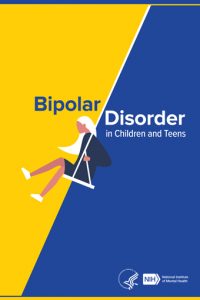Medline Plus: Medical Information Resource [web resource]
 MedlinePlus is the National Institutes of Health‘s Web site produced by the National Library of Medicine, the world’s largest medical library. Read more ›
MedlinePlus is the National Institutes of Health‘s Web site produced by the National Library of Medicine, the world’s largest medical library. Read more ›
 Trying to tell the difference between what expected behaviors are and what might be the signs of a mental illness isn’t always easy. There’s no easy test that can let someone know if there is mental illness or if actions and thoughts might be typical behaviors of a person or the result of a physical illness.
Trying to tell the difference between what expected behaviors are and what might be the signs of a mental illness isn’t always easy. There’s no easy test that can let someone know if there is mental illness or if actions and thoughts might be typical behaviors of a person or the result of a physical illness.
Each illness has its own symptoms, but common signs of mental illness in adults and adolescents can include the following… Read more ›
 Does your child go through extreme changes in mood and behavior? Does your child get much more excited or much more irritable than other kids? Do you notice that your child goes through cycles of extreme highs and lows more often than other children? Do these mood changes affect how your child acts at school or at home? Read more ›
Does your child go through extreme changes in mood and behavior? Does your child get much more excited or much more irritable than other kids? Do you notice that your child goes through cycles of extreme highs and lows more often than other children? Do these mood changes affect how your child acts at school or at home? Read more ›
 It’s not unusual for young people to experience “the blues” or feel “down in the dumps” occasionally. Adolescence is always an unsettling time, with the many physical, emotional, psychological and social changes that accompany this stage of life.
It’s not unusual for young people to experience “the blues” or feel “down in the dumps” occasionally. Adolescence is always an unsettling time, with the many physical, emotional, psychological and social changes that accompany this stage of life.
Unrealistic academic, social, or family expectations can create a strong sense of rejection and can lead to deep disappointment. When things go wrong at school or at home, teens often overreact. Many young people feel that life is not fair or that things “never go their way.” They feel “stressed out” and confused. To make matters worse, teens are bombarded by conflicting messages from parents, friends and society. Read more ›
Trying to tell the difference between what expected behaviors are and what might be the signs of a mental illness isn’t always easy. There’s no easy test that can let someone know if there is mental illness or if actions and thoughts might be typical behaviors of a person or the result of a physical illness.
Watch this video to learn the common signs of mental illness… Read more ›

The Suicide Prevention Resource Center (SPRC) provides technical assistance, training, and materials to increase the knowledge and expertise of suicide prevention practitioners and other professionals serving people at risk for suicide; however, many resources on the site may be of interest to the general public. Read more ›
 Established in October 2000, Australia-based mental health website beyondblue initially focused on raising awareness of depression and reducing the associated stigma.
Established in October 2000, Australia-based mental health website beyondblue initially focused on raising awareness of depression and reducing the associated stigma.
Their mission has evolved to equipping everyone in Australia with the knowledge and skills to protect their own mental health, giving people the confidence to support those around them, and making anxiety, depression and suicide part of everyday conversations. Read more ›
An Epi-Aid is an investigation of an urgent public health problem. The focus of Epi-Aids is to try to determine the cause(s) and/or extent of a specific health problem and to develop prevention and control recommendations. From 2009 through 2015, there were a number of suicides among incoming, current, or alumni members in one school district in Palo Alto, in Santa Clara County. In response, the California Department of Public Health (CDPH) requested assistance from the CDC to understand youth suicide in Santa Clara County and the affected cities and school districts.
The preliminary results of the research are presented in a slideshow prepared by the Santa Clara County Public Health Department. Read more ›
 Born This Way Foundation was launched in 2012 by Lady Gaga and her mother, Cynthia Germanotta. The foundation focuses on researching, learning, and developing programs to support their mission—connecting young people in safe ways and empowering them with the skills and opportunities that will inspire them to create a kinder and braver world.
Born This Way Foundation was launched in 2012 by Lady Gaga and her mother, Cynthia Germanotta. The foundation focuses on researching, learning, and developing programs to support their mission—connecting young people in safe ways and empowering them with the skills and opportunities that will inspire them to create a kinder and braver world.
Born This Way Foundation is committed to supporting the wellness of young people and empowering them to create a kinder and braver world. Read more ›
 Parents wonder what they could be doing to better help their kids navigate the sometimes-treacherous waters of their adolescent years. Fortunately, scientists who study teen depression have some preliminary advice.
Parents wonder what they could be doing to better help their kids navigate the sometimes-treacherous waters of their adolescent years. Fortunately, scientists who study teen depression have some preliminary advice.
By looking at new findings in neuroscience as well as other psychological research and longitudinal data, scientists are zeroing in on a better understanding of what impacts teen depression and how to prevent it. Here are some of the suggestions coming out of the science. Read more ›